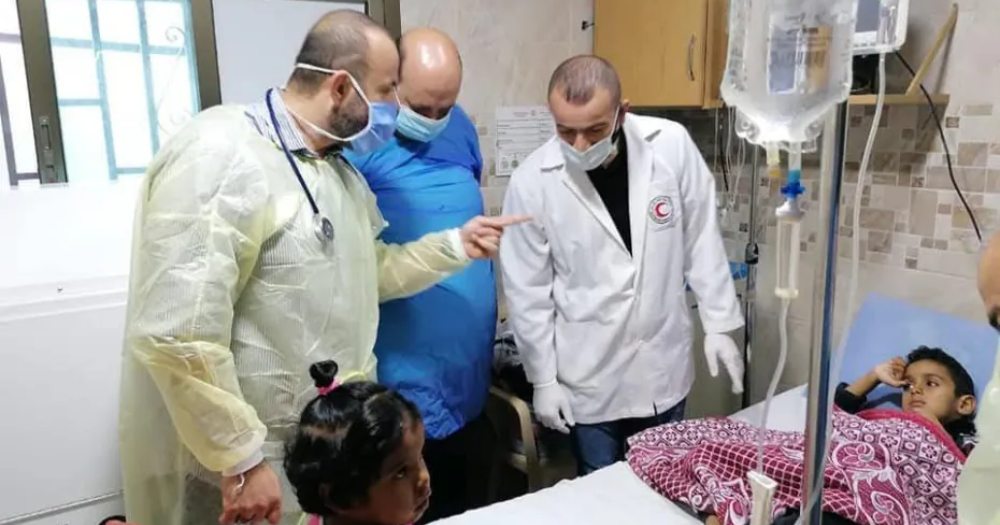AI scribes comes to Lebanon to redefine frontline healthcare

In a corner of southern Lebanon, where hospital corridors are crowded and the hum of dialysis machines never quite stops, a quiet revolution is taking root. At Al Hamshari Hospital — one of the few lifelines for tens of thousands of displaced Palestinian refugees — clinicians have welcomed a new colleague. Not a doctor in a white coat, but an artificial intelligence scribe.
This pilot, led by UK-Qatar startup Rhazes AI, is the first structured deployment of AI scribes in a conflict zone. With just 80 beds and a handful of overworked doctors and nurses serving more than 4,000 patients each month, the pressure is relentless. As Dr. Zaid Al-Fagih, co-founder and CEO of Rhazes AI, put it: "This isn't about replacing doctors, it's about surrounding them with support."
How does it work?
Think of the AI scribe as the ultimate assistant — always listening, never distracted, and armed with medical know-how. Unlike clunky dictation software, Rhazes AI's platform does more than record words. It organizes consultations in real time, produces structured notes, and even suggests next steps.
Key functions include:
- Real-time transcription of doctor-patient conversations, with context-aware formatting.
- Decision support, offering differential diagnoses and treatment options based on guidelines.
- Automated records, from admissions to discharge summaries and billing codes.
- Integration with hospital systems, so data flows seamlessly without expensive tech upgrades.
The payoff? Doctors save hours otherwise swallowed by paperwork. Past studies suggest up to a 60% reduction in administrative load. And in a place where one doctor might see 60 patients a day, every minute matters.
Why does it matter?
Because this is more than a tech demo. It's a lifeline. In wealthy hospitals, AI scribes are already proving their worth. But in conflict zones — where systems are fragile, staff are exhausted, and patient loads are crushing — the impact is magnified. Every second shaved off documentation is a second returned to patient care.
Dr. Al-Fagih stressed the equity dimension: "In an age where AI too often deepens inequality, this is an example of what it looks like to close that gap. It's time for innovation to meet people where they are."
And for people like Rola Soboh, who is helping implement the pilot on the ground, the project cuts deeper than metrics: "This hospital isn't just a building, it's a lifeline. Doctors here don't just treat patients, they carry entire communities."
The context
Al Hamshari Hospital sits near Ein el-Hilweh, Lebanon's largest Palestinian refugee camp, and it has long been a bulwark in times of crisis. When conflicts flare in Gaza and southern Lebanon, casualties mount and the hospital's small staff carries an impossible load. Dialysis, surgery, emergency care — it all happens here, often at once.
By bringing AI scribes into this pressured environment, Rhazes AI is testing a daring idea: that advanced technology doesn't belong only in gleaming, resource-rich hospitals. It can adapt to the messy reality of refugee camps and understaffed clinics too.
If the pilot succeeds, it could point the way to a future where software is as essential in frontline healthcare as stethoscopes or syringes. A future where, as Dr. Al-Fagih envisions, AI "reduces uncertainty and lets doctors focus on what matters the most — the patients."
💡Did you know?
You can take your DHArab experience to the next level with our Premium Membership.👉 Click here to learn more
🛠️Featured tool
 Easy-Peasy
Easy-Peasy
An all-in-one AI tool offering the ability to build no-code AI Bots, create articles & social media posts, convert text into natural speech in 40+ languages, create and edit images, generate videos, and more.
👉 Click here to learn more


